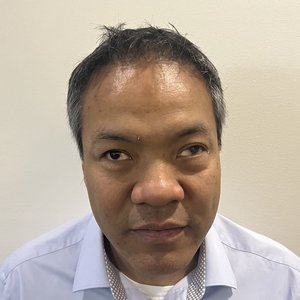About the 10-year anniversary event
After 2019's very first and hugely successful summit in Berlin and our cancelled attempt in 2020 we are giddy with excitement to announce our next summit for 2024, which will also mark our 10-year Accessibility Club anniversary! 🎉
Again, the summit will be jointly run by multiple web accessibility and inclusive design related meetups from all over Europe, and again there will be a premiere: For the first time, the Accessibility Club will meet outside of Germany, this time welcoming you to Amsterdam!
The summit will take place right after CSS Day 2024 and again feature a full-day BarCamp and a second day with community run workshops.
Join us for two days of gaining knowledge about web accessibility, exchanging experiences and meeting like-minded enthusiasts from all over Europe and beyond: June 8th-9th, 2024, in Amsterdam, Netherlands!
How do I benefit?
As an accessibility enthusiast, you will meet a lot of like-minded people from various disciplines and with all sorts of skill level. You will be able to share your experiences, broaden your horizon and make new friends.
As a meetup or event organiser, you will get new impulses for your events, put them into a bigger context and just have a lot of fun with your usual attendees who will hopefully join you to the Summit. Take it as a super-social excursion that takes you out of your usual boundaries. 😉
Organising? Join in!
If you're organising an accessibility meetup, inclusive design related event or anything similar and want to get involved with the Summit, please get in touch. We hope to be able to mobilise many accessibility enthusiasts from Germany, the Netherlands and many other countries. We'll try to get in touch with as many groups and meetups as we get to know of, but you're welcome to be faster than we are. You don't necessarily have to take an active role but we'd still appreciate your input.
BarCamp + Workshops
We run the summit as a 2-day event, taking place at 2 locations in Amsterdam:
- Day 1 is all about conversation and sharing experiences. BarCamp-style sessions mixed with a handful of pre-planned presentations for all attendees, pretty much like we had at the Accessibility Club Summit 2019 in Berlin.
- Day 2 is for learning, expanding our knowledge and putting things into practise. Visit one of several workshops about developing and designing accessible websites and digital content, run by community members like yourself.
BarCamp Sessions
In addition to the pre-planned presentations, there will be further parallel sessions, which will be jointly decided on the morning of the event in the style of a BarCamp. Each participant can propose a session — it does not have to be a prepared presentation. Just bring your own topic! It can be a discussion round, an exchange of experiences, or you are welcome to show what you have been working on recently. The audience will decide together which topics will become a session.
Pre-planned presentations
For the BarCamp day, we'll use a hybrid schedule style with spontaneous sessions and pre-planned presentations. In April 2024, we conducted an anonymous Call for Presentations to determine these pre-planned presentations. A 14-member jury, consisting of dedicated enthusiasts from the Accessibility Club community who volunteered for this task, selected 6 presentations from the many submissions, which we believe will provide a highly interesting basic programme for the Summit. The schedule below shows you the performers and topics you can expect to see at the Summit.
Captions & Live Stream
The pre-planned presentations will be supported by human-made live captions that can be read on site on a monitor and on private devices via an internet connection (e.g. on a smartphone).
In addition, the pre-planned presentations will be recorded on video and published after the event. The presentations will also be streamed live during the event if the technology does not let us down. All ticket holders will be sent the access data for the live stream in a timely manner to the e-mail addresses stored in their tickets.
The other, spontaneous BarCamp sessions and the workshops on 9 June will not be subtitled, recorded or streamed live.
Schedule
| Time | Agenda item |
|---|---|
| - | Accessibility 101This session is explicitly aimed at all those who are new to accessibility and would like to familiarise themselves with the most basic concepts and terms of accessibility before the actual event. The presenters will guide you through the key principles and ensure that you have a better understanding of some of the day's topics. The session is designed to give you more confidence and understanding of the broad field of accessibility and allow for an initial exchange with like-minded enthusiasts. This session is explicitly aimed at all those who are new to accessibility and would like to familiarise themselves with the most basic concepts and terms of accessibility before the actual event. The presenters will guide you through the key principles and ensure that you have a better understanding of some of the day's topics. The session is designed to give you more confidence and understanding of the broad field of accessibility and allow for an initial exchange with like-minded enthusiasts. Performed by |
| - | Doors open |
| - | Opening Performed by |
| - | GAAD Foundation: Who We Are and What We DoJennison Asuncion, Co-Founder of the GAAD Foundation will spend a few minutes talking about the mission and work of the foundation and how you can get involved. Performed by |
| - | Session planning |
| - | Embedding a11y in your design processDesigners play a very important role in the accessibility of products. With almost 80% of the WCAG pointing out to their direction they become the key to creating inclusive experiences that leave no one out. Let’s explore those guidelines and the tools that can help design accessibility to become part of our everyday work. More and more companies realize that addressing accessibility issues during production is neither sustainable nor cost-effective and harms the user experience and the reputation of their products. Shifting accessibility left, to the earlier stages of the product cycle, is essential, with designers holding the keys to decisions that can have a significant impact. Unfortunately, many designers have not been exposed to accessibility concepts during their studies and face a steep learning curve. WCAG is here to help, and this talk aims to simplify these guidelines, highlight the main points to focus on, and introduce tools that will assist designers in integrating accessibility into their work and culture. Performed by |
| - | Decoding the Impact: Accessibility Overlays Through a Scientific LensAccessibility overlays are heavily criticised within the accessibility community regarding their effectiveness and whether they meet the needs of the intended user group. This talk details the impact accessibility overlays actually have on usability and user experience, backed by academic research. Access to digital information is crucial for social inclusion and equal opportunities. Unfortunately, most websites contain accessibility errors, creating a significant barrier for users with impairments. Accessibility overlays have emerged as a potential solution. However, despite their intended benefits and rapid market growth, accessibility overlays face significant criticism within the accessibility community. Various voices question their effectiveness and whether they meet the needs of the intended user group. This talk details the actual impact accessibility overlays have on usability and user experience, backed by recent academic research. The results of a technical evaluation and research conducted with individuals with permanent visual impairments will be presented and discussed, adding new and supplementary information to the discussion. Performed by |
| - | Modern CSS Upgrades To Improve AccessibilityModern CSS provides capabilities we can leverage to make layouts and components more accessibly inclusive for users of all abilities across any device. You'll learn about adjustments to focus states, spacing, color, and more. CSS features and behaviors have grown exponentially over the past few years, so let's dive into features that can enhance the accessibility of interactive experiences. Most features are well supported across evergreen browsers so you can start using them right away! Others make for excellent progressive enhancements, meaning they will provide an even more optimal experience when used in a supporting browser. We'll also sneak a peek at incoming features that directly impact accessibility, and that you can provide feedback on to the CSS Working Group. While encouraging the development of inclusive experiences is the goal of this talk, you're sure to learn some new things about CSS to extend and apply in multiple scenarios. Performed by |
| - | Lunch break |
| - | “Built-in” accessibility: blessing or curse?There's talk of “building in” accessibility, but the risk of overpromise and disappointment is real. This talk proposes some ways to be effective at removing barriers from your products at scale. “We'll build in accessibility”, they say. Whether it's in standards, browser functionality, web platform features or design system components … the resulting reality could be anywhere from an enormous opportunity to a huge disappointment. There's something at stake here. And as an accessibility specialist, you should probably ask questions. In this talk, we'll look at how “built in” can be effective and how it helps NL Design System to remove barriers at scale. Performed by |
| - | Android Accessibility: Do or DoThis presentation shows the main accessibility problems users face and what to do with them. It is more convenient for blind people to use a smartphone than a computer! Of course, this statement is not true for everyone, but there are more and more smartphone users, and mobile operating systems are very quickly developing an accessible environment. Creating an application and uploading it to the store is also becoming easier. But these apps are often inaccessible to users with disabilities and do not work properly with accessibility settings (such as larger fonts). Glafira will go through the main problems that users face and tell you what to do with them. Performed by |
| - | Navigating the Accessibility Journey: From Proof-of-Concept to Organisation ModelThis talk will explore how to integrate accessibility into design and development processes. Anastasiia will share not just their successes but also the mistakes they made. Learn about raising awareness, building a team, planning, and the challenge of convincing stakeholders. With the European Accessibility Act coming up in June 2025, it’s likely you’ll need to start thinking more about making your products accessible. How do you get started, and who will help you do it? Anastasiia will share her journey of promoting accessibility within the organization: starting from initial advocacy and awareness, to executing a proof-of-concept that demonstrated the tangible benefits, and finally, developing a comprehensive strategy to integrate accessibility across the entire department. The presentation will cover the practical steps taken, challenges encountered, and valuable lessons learned along the way. This session is for anyone who wants to know how to build a team, pitch a vision, and scale accessibility practices effectively within an organization. Performed by |
| - | Closing Performed by |
| Time | Agenda item |
|---|---|
| - | Accessibility of FormsForms are the #1 method for users to interact on a website — with the site owner or with each other. Forms are how content is created and how visitors convert to customers. By volume, issues with forms outnumber all other issue types. During this full-day workshop attendees will learn the numerous challenges that people with disabilities have when using forms and how to design and develop more accessible forms. During a highly interactive and collaborative hands-on workshop, attendees will go through the process of planning, designing, and developing a form. Throughout several breakout sessions, attendees will collaborate on tasks that include:
Along the way the attendees will be creating their own form and testing their form for usability and accessibility. Workshop by |
| - | Beyond CSS: JavaScript Requirements for Accessible ComponentsCSS is more capable than ever, leading to a new generation of hacks under the banner of “No-JS”. While reducing reliance on JS is usually admirable, some CSS-only hacks leave a significant amount of users unable to use your interface. Join this workshop to learn how to build several common components, why CSS isn't sufficient for covering accessibility, and the necessary JavaScript requirements. Solutions will be vanilla-JS with no framework reliance, although we will also discuss how to evaluate ready-made components for accessibility. You'll leave the workshop with a toolbox for building accessible:
Workshop by |
| - | DIY Accessibility testingEverybody can test for accessibility. You don't need years of experience to contribute to accessible products. This workshop will teach you how. In this short timespan I will show you a quick way to assess a website (or other digital product). You'll learn to test common aspects like keyboard accessibility, contrast, text alternatives and sizing. It doesn't matter wether you're a manager, developer, designer or writer. You can find easily fixable improvements that include people and benefit everybody. You'll learn a skill that you can use and apply everywhere! Workshop by |
Performers
-
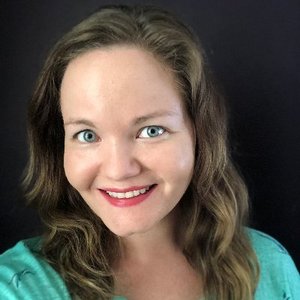
Stephanie Eckles
Front-end focused software engineer, advocate for accessibility, scalable CSS, and web standards
- Internet
- https://thinkdobecreate.com
- Mastodon
- @5t3ph@front-end.social
-
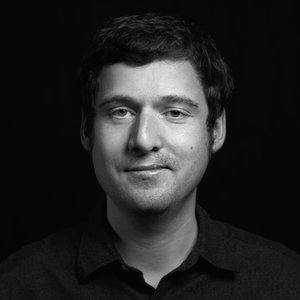
Hidde de Vries
Freelance front-end developer, excited about web standards, HTML, CSS, JavaScript and accessibility
- Internet
- https://hidde.blog
- Mastodon
- @hdv@front-end.social
-

Anastasiia Batarei
Front-End Engineer with a keen eye for design
- anastasiia-batarei-213281121
-
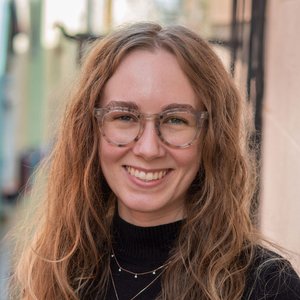
Daniela Kubesch
Accessibility engineer focusing on frontend development, testing and user research
- Internet
- https://dnikub.dev
- Mastodon
- @dnikub@front-end.social
-
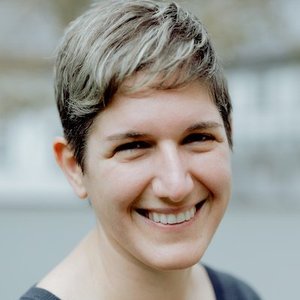
Nasia Makrygianni
- makrygianni
-
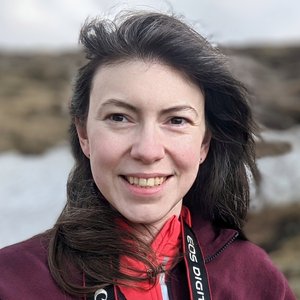
Glafira Zhur
Accessibility Project Manager at Semrush, GDE for Web
- glafira-zhur
-
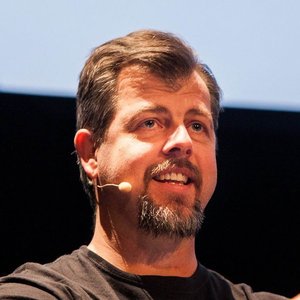
Karl Groves
Accessibility Consultant
- Internet
- https://www.karlgroves.com
- Mastodon
- @karlgroves@mastodon.social
-
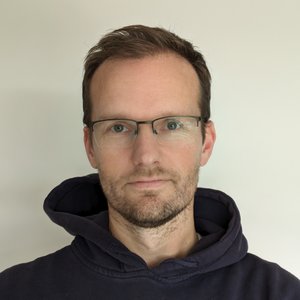
Erik Kroes
Accessibility consultant specialized in Design Systems and making large organizations accessible
- Internet
- https://www.erikkroes.nl
- erikKroes
-
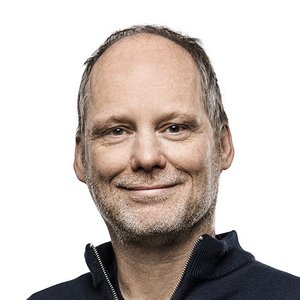
Oliver Vaupel
Designer and Web Accessibility Specialist
- Internet
- https://ovau.de
- ovaudesign
-
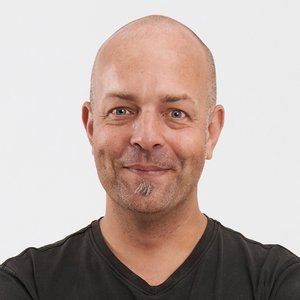
Joschi Kuphal
Designer, programmer, lecturer, event organiser and restless tinkerer from Nuremberg
- Internet
- https://jkphl.is
- Mastodon
- @jkphl@mastodon.social
- joschikuphal
-
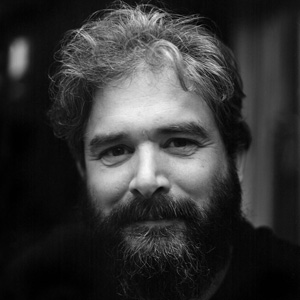
Vasilis van Gemert
Lecturer in Amsterdam
- Internet
- https://vasilis.nl
- Mastodon
- @vasilis@social.vasilis.nl
Locations
The BarCamp part of the summit will take place at the Amsterdam University of Applied Sciences where Vasilis is being a lecturer.
Important note: At weekends, the "Theo Thijssenhuis" building must be entered via the entrance from the "Eerste Boerhaavestraat". You will find the entrance when you cross the courtyard straight ahead.
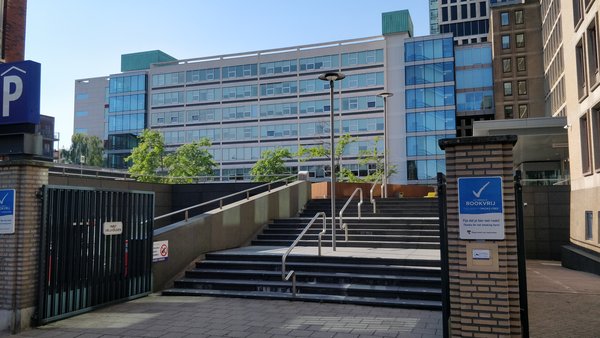
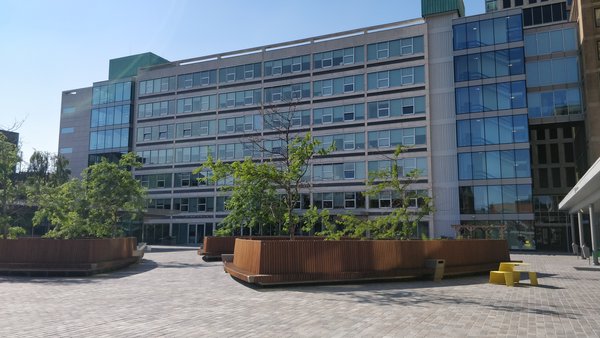
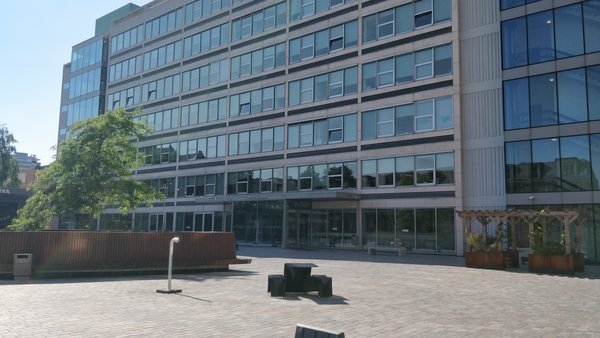
This time, all 3 workshops will be hosted by a single agency: The Valley. The nice side effect: participants in different workshops can also exchange ideas with each other during the breaks, for example.
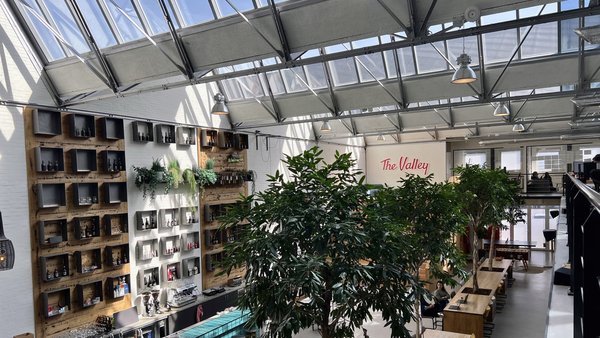
Accessibility Info
As with all our events, we'll try to make the Summit itself as accessible as possible so that all folks can afford, enter and enjoy the event. We'll make every effort to provide (not only but including; in order of priority):
- a welcoming atmosphere with special attention to visible and non-visible disabilities, privacy, identification & communication preferences as well as neurodiversities
- easy physical access to the venue(s) including public transport and wheelchair accessibility inside the venue(s)
- access and supplies for assistance animals
- live captioning & streaming of at least the pre-planned presentations (including public links to the caption & video streams)
- if provided: food / beverages with different options for various dietary needs and preferences
- sign language interpreters in different languages (no coordinated offer for the Amsterdam Summit, but private translators may be present)
However, as you can imagine, many of these features come with quite some costs or requirements regarding the venues. At the time of this writing, there are still a lot of open questions, so we cannot yet guarantee that we'll be able to match all of them. We'll do our best to keep you posted about the current situation.
Health & other precautions
The requirements on the BarCamp day are based on the regulations of the Amsterdam University of Applied Sciences. There is no general obligation to wear a face mask, but we encourage everyone to wear one. The university building complies with the Dutch Norm of Fresh Schools Level C, so the air quality is labelled as "acceptable".
Animals are generally not allowed unless it can be proven that it is an assistance animal.
Sponsoring
While the Summit is set to be a community event, run by enthusiasts for enthusiasts, we will still need some funding for major matters of expense and to keep the financial barrier for attendees low. If you'd like to support our effort — by contributing money, food or anything else that might truly benefit our attendees — please get in touch. We're very flexible will try to match your needs as much as we can. However, please don't expect us to distribute useless swag or other materials that aren't sustainable or have no association with accessibility matters.
Need help to convince your boss (or yourself) to support the Summit? We've got you covered! Please have a look at our Sponsorship Information brochure in English or German language.
Code of Conduct
As with all our events, we've got a Code of Conduct in place which will be enforced during both days of the Summit. It's there to ensure maximum inclusivity so that everyone can feel welcome and comfortable. Please make sure you read and understand its contents before registering, attending or submitting a presentation or workshop proposal. It goes without saying that our Code of Conduct also applies to our valued presenters, sponsors and supporters.
How do I stay updated?
Slack Team
You can either join the #announcements channel in our Accessibility Club Slack Team. We use the Slack team for organisational tasks as well as community stuff. If you'd like to broaden its purpose and make it an even more open platform, we'd love to hear your ideas!
Hosts
-
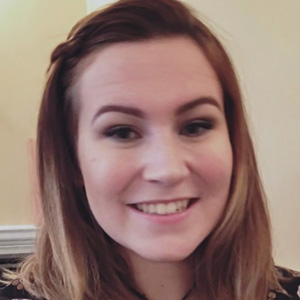
Molly Watt
Assistive technology advocate, consultant, speaker, author and inclusion activist
Molly is a 24 year old inclusive technology evangelist, keynote speaker, children's illustrator and author. She is co founder of the Molly Watt Trust, director of Molly Watt Limited, ambassador of GN Hearing and an advocate of assistive technology.
Molly has experienced exclusion, rejection and isolation throughout education — as a result her passion lies in inclusion. Currently she's consulting with developers and designers in digital, breaking down barriers for those with and without specific accessibility needs. She's working alongside some of the biggest in digital and their accessibility teams. She's also raising awareness of abilities within disabilities using assistive technologies.
Molly was born severely deaf, then registered blind — becoming deafblind at 12. She has a unique insight into accessibility, the use of accessibility features and mainstream assistive technologies.
Molly has spoken, run workshops and consulted to worldwide accessibility teams including Apple Cupertino, Sydney and London, also raising awareness of diverse needs at Harvard Medical School, Palace of Westminster as well as to organisations like Government Digital Services, BBC Accessibility, Barclays Bank, TSA, London Digital Health, NHS Digital, Sigma, Wayfindr, Naidex, Atec. She's collaborating with charities and others in the fields of awareness, empathy, accessibility, assistive technology and inclusion.
Molly's belief is that digital holds the key to accessibility, diversity and inclusion for all. We all have work to do.
- Internet
- http://www.mollywatt.com
- @MollyWattTalks
-

Joschi Kuphal
Designer, programmer, lecturer, event organiser and restless tinkerer from Nuremberg
Joschi is working on the web since the mid 90s and founded the web agency tollwerk in 2000, which he continues to shape to this day. He has shared leadership of tollwerk with his team in an equal, cooperative and self-organizing way since 2022. He launched a couple of event series like the border:none and Material conferences, the Accessibility Club and the CoderDojo Nürnberg. He's occasionally running IndieWebCamps, hosting the monthly accessibility webcast technica11y and used to be one of the driving forces behind the Nürnberg Digital Festival.
- Internet
- https://jkphl.is
- Mastodon
- @jkphl@mastodon.social
- joschikuphal
- Github
- @jkphl
-

Vasilis van Gemert
Lecturer in Amsterdam
Vasilis teaches the next generation of digital product designers how to design things for the web. Preferably things that work for everyone. He does this at the University of Applied Sciences in Amsterdam. He successfully completed the Design Master program at the Willem de Kooning Academy in Rotterdam. During his research he designed tailor made websites for real people with real disabilities. Vasilis has published over 20,000 books about form and colour.
- Internet
- https://vasilis.nl
- Mastodon
- @vasilis@social.vasilis.nl
-
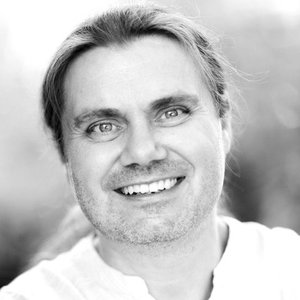
Marc Haunschild
Marc Haunschild has mastered the theory and practice of accessible web development. He has over 20 years of experience as a developer, speaker and author of specialised books and has been working in adult education for more than ten years. As a freelance accessibility consultant, he advises clients from business and the public sector, from schools to federal ministries, from independent developers to software system houses.
- Internet
- https://accessibility.consulting/en
-

Nasia Makrygianni
Lead UX engineer & a11y expert with a background in web development. Spezializing in web and app accessibility, currently working at Delivery Hero. Passionate about neuroscience & interiors.
- makrygianni
-
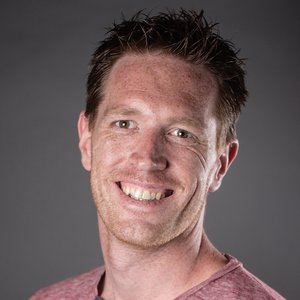
Ronny Hendricks
Head of Accessibility at Nomensa
From web developer to accessibility specialist and with well over two decades of lived experience. Ronny tries to make the world more accessible step by step. Core interests are organisational change through accessibility maturity, accessibility in educational curricula and (as a passionate and disabled gamer) accessible video games.
- ronnyhendriks
-
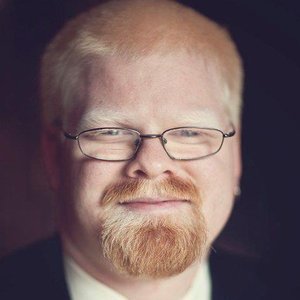
Chris Gaulin
Accessibility Community Builder
Chris Gaulin is a seasoned entrepreneur with over two decades of experience in the digital accessibility space. He regularly brings his experience in digital accessibility, communication technologies, education, and e-learning to government agencies and organizations of all sizes.
Having organized over 40 conferences, Chris volunteers his skills in planning and logistics to accessibility events in Toronto, San Francisco, Los Angeles, and Beirut, and is one of the lead organizers of the largest group of digital accessibility practitioners in the world.
- chrisgaulin
-

Christa Peters
a11yTO Organizer
Christa Peters is an IT professional based in Canada. By day, she is a Customer Success Manager with a growing SaaS provider. Christa is also an organizer with a11yTO, one of the largest digital accessibility meetup groups globally. She leads the organization’s speaker engagement and provides event logistics to large-scale accessibility events in Toronto and around the world.
-
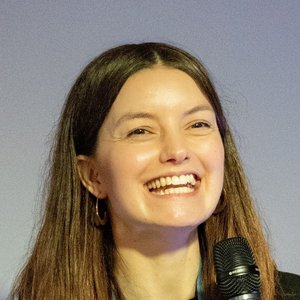
Josefine Schaefer
Accessibility Advocate & Engineer, Cat mom & Dance teacher
Josefine took the scenic route into the tech industry: she used to work in Marketing and Communication before entering a bootcamp and becoming a frontend engineer. These days she is a Google Developer Expert, Women Techmakers ambassador and has a monthly stream with two friends called GirlCode Coffee Chat. She cares deeply about making tech communities more inclusive and opening space to as many as possible. She is a certified pole dance & aerial silks instructor and spends a lot of her time upside down.
- @JsfnSchfr
- j-schaefer
- Github
- @josefineschaefer
